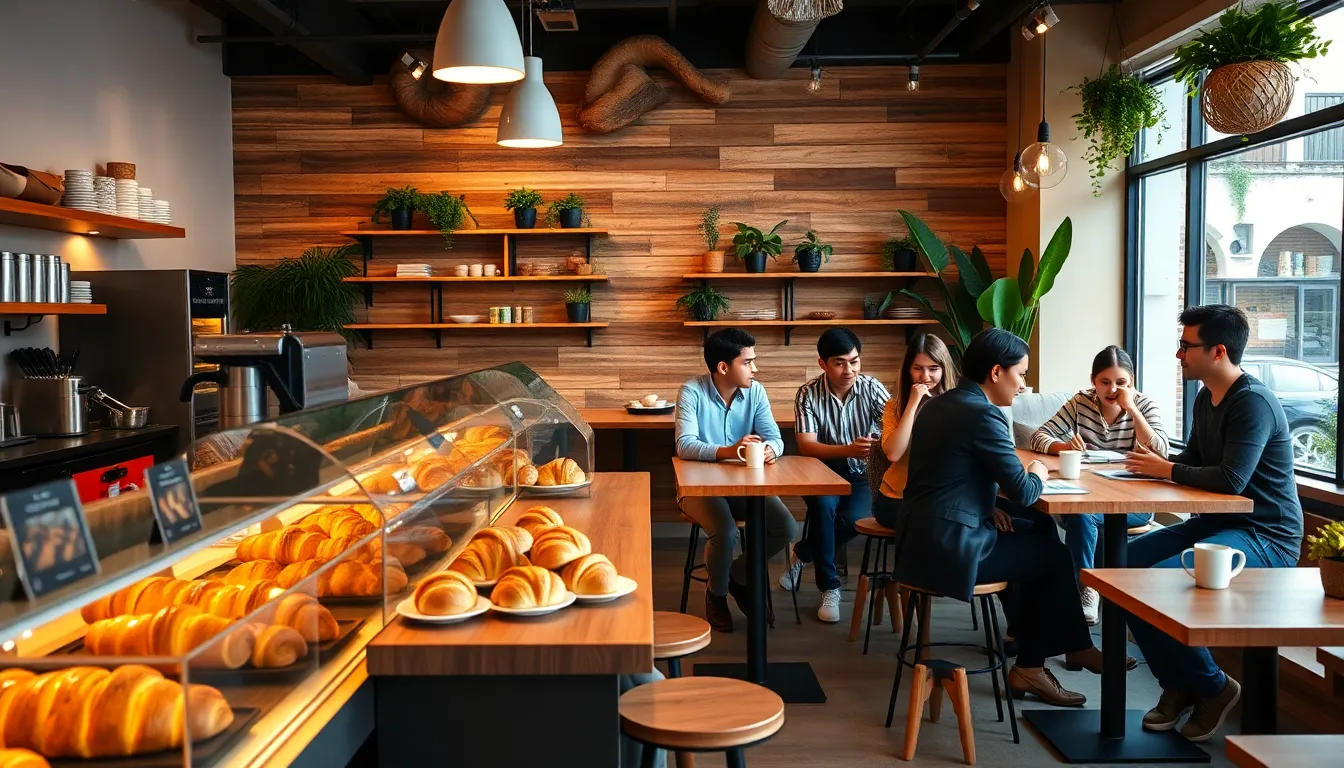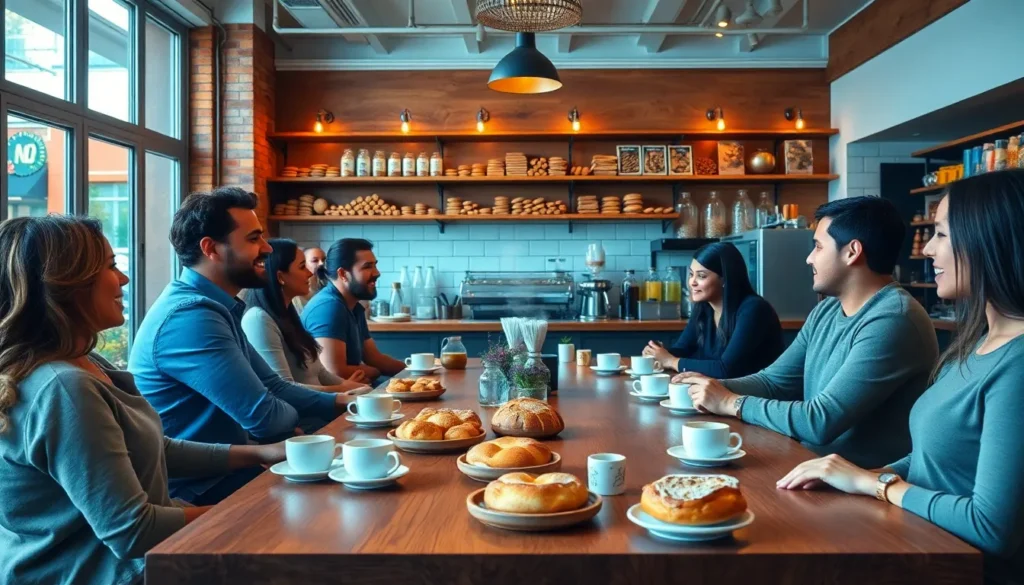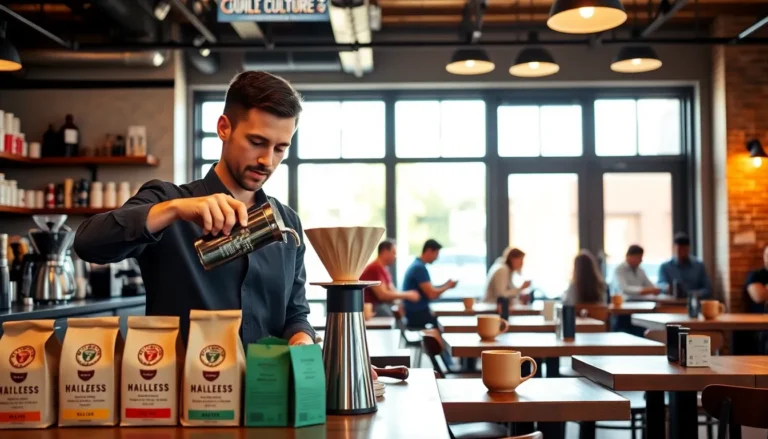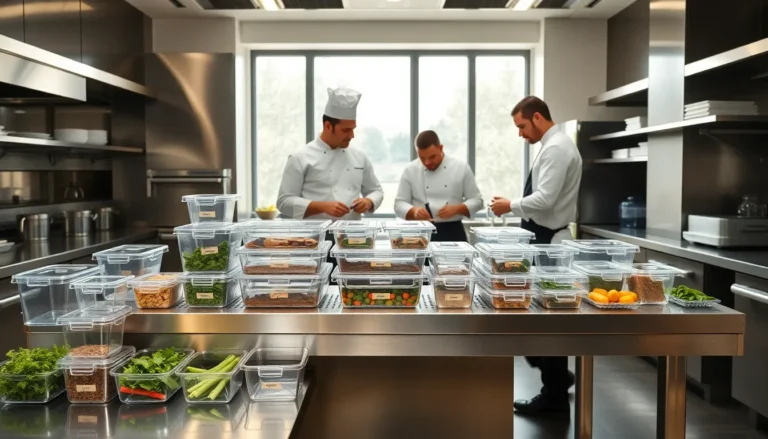Imagine waking up and being greeted by the rich aroma of freshly brewed coffee alongside the warm scent of baked pastries. It’s like stepping into a scene from a cozy movie, one filled with laughter, lively conversations, and a sprinkling of creativity. Welcome to the world of coffee and culture bakeries, a delightful intersection that not only fuels our caffeine cravings but also nourishes our social bonds. Curious about how this comforting combo came to be? Let’s take a delicious jump into the intricate dance of coffee and bakery culture.
Table of Contents
ToggleThe Intersection Of Coffee And Bakery Culture

Coffee and bakery culture isn’t just about sipping a cup while nibbling on a croissant: it encompasses history, community, and evolution. The roots of this delightful duo trace back centuries, intertwining across continents, with coffee once deemed a luxury and baked goods treated as art forms.
Historical Significance Of Coffee And Bakeries
In the 15th century, coffee made its debut in Yemen. From there, it spread like wildfire to bustling cafes in Istanbul, eventually landing in Europe. Bakeries flourished alongside coffeehouses where intellectuals gathered, sharing ideas over fragrant brews and fresh loaves. These establishments morphed into meeting places that laid foundations for social movements, art, and literature. Today, the remnants of this rich history can still be found in modern coffee and culture bakeries that carry forth the tradition of community engagement.
Global Perspectives: Coffee Culture Variations
Different cultures embrace coffee and bakery in ways that reflect their unique lifestyles and tastes. For instance, in Italy, coffee culture is synonymous with espresso. It’s a quick, concentrated affair: think standing at the bar, sipping your drink, and moving on with your day.
In contrast, Turkish coffee is often served with spiced pastries, inviting patrons to linger and savor the experience. Meanwhile, Scandinavian countries celebrate the concept of ‘fika’, a coffee break that includes sweet treats and a social gathering. Each variation not only showcases the uniqueness of the culture but also emphasizes how food and drink can enhance social connections.
Baked Goods That Pair Perfectly With Coffee
As coffee evolves, so do the offerings of bakeries. Sugary, flaky pastries are timeless, but the trend is shifting toward artisanal methods, and that’s where the magic happens.
The Rise Of Specialty Coffee And Artisan Bakeries
Imagine a perfectly toasted slice of sourdough paired with a velvety flat white. More people are seeking specialty coffee that complements the intricacies of freshly baked bread and pastries. Artisans are venturing beyond traditional recipes, experimenting with flavors and techniques that elevate the humble baked good into culinary masterpieces.
Sustainable Practices In Coffee And Baking
The focus on sustainability has also reshaped coffee and baking cultures. Bakeries are increasingly sourcing organic ingredients, while coffee lovers seek brews that support fair trade practices. This merger of flavors and ethics doesn’t just taste good: it fosters a sense of community and responsibility among consumers who appreciate where their food and drink come from.
Creating A Community Space: Cafés As Cultural Hubs
Cafés serve more than just delicious edibles: they are the lifeblood of communities. Think of a local café where you’ve shared stories, celebrated milestones, or simply enjoyed a peaceful morning. These establishments provide a sanctuary from the fast-paced world, becoming spaces for art, music, and connection.



